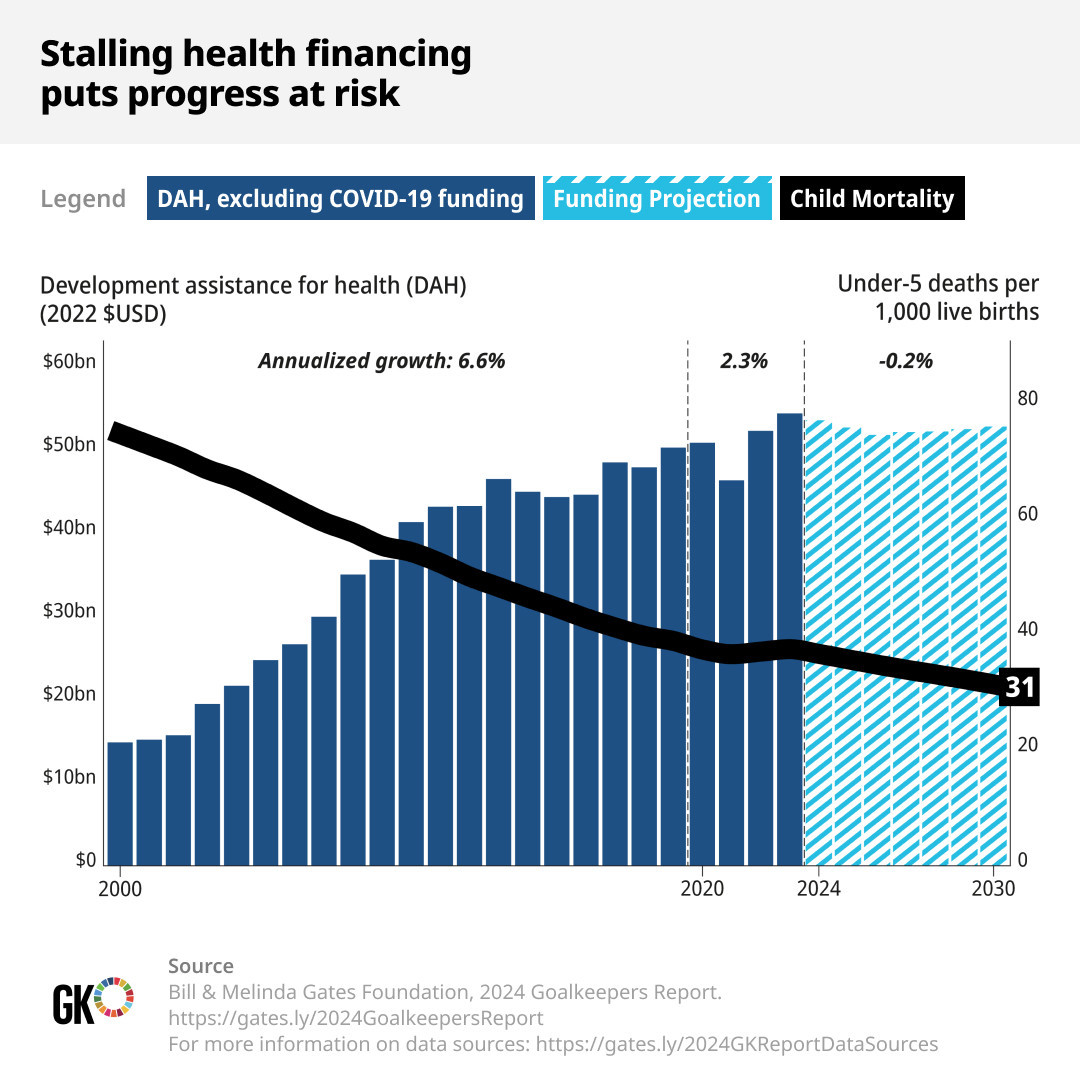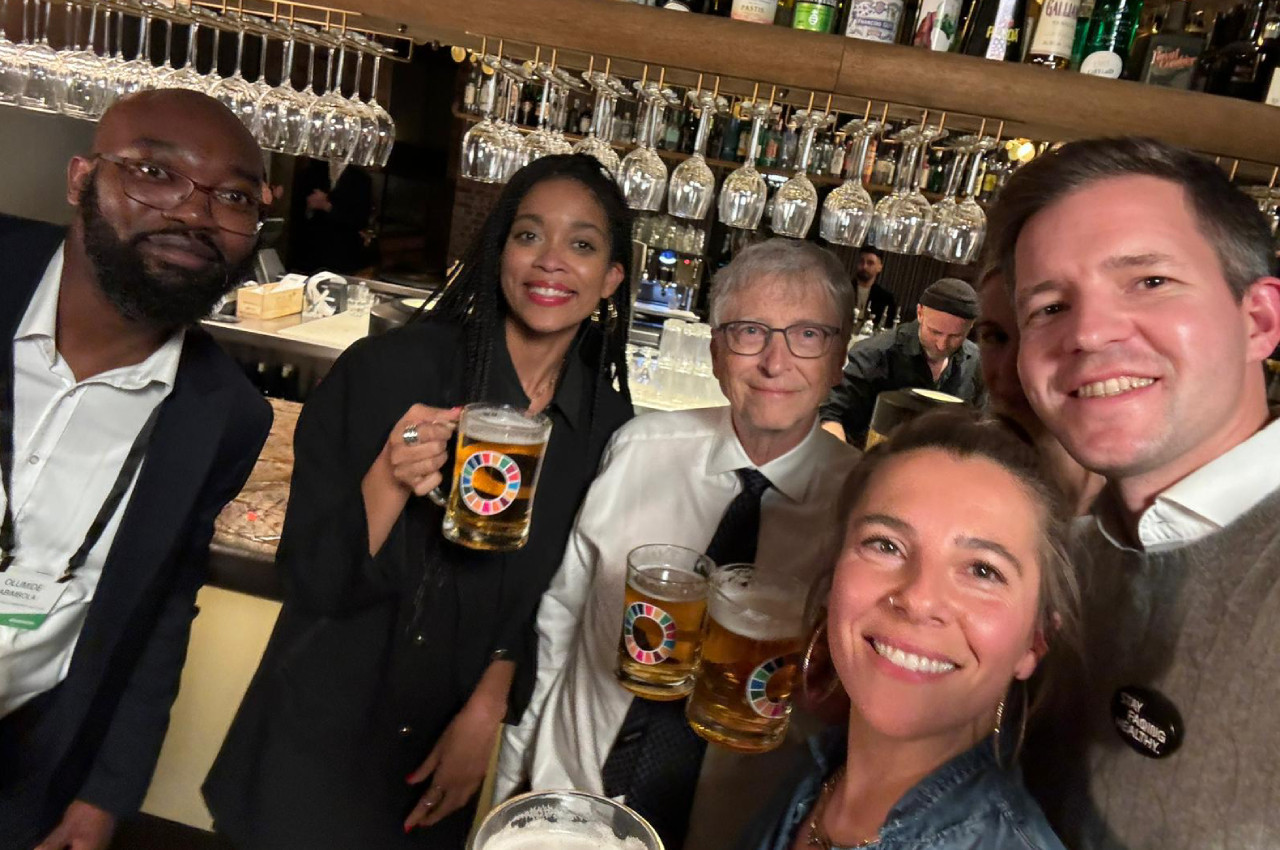They are probably the most offensive guardians in the history of the sporting movement. Their commitment is a constant “sport.” On Tuesday in Berlin, almost 50 years after the creation of Microsoft with Paul Allen, Bill Gates brought together his European Goalkeepers. Literally, those who ensure that governments follow through on their promises to achieve the Sustainable Development Goals (SDGs) set by the United Nations for 2030. These goals cover a wide range of areas, including reducing poverty, improving health and education, promoting gender equality and combating climate change.
The Goalkeepers initiative, born in 2017, has several key components:
- An annual report: each year, the Gates Foundation publishes a report that assesses global progress towards the SDGs. The report highlights successes, identifies areas needing more attention and provides detailed data to track progress. .

More than 400m children do not have enough to eat, says Bill Gates in the report. Development aid has been seriously reduced since the covid-19 pandemic. It used to provide “an average of $10.47 on health per person in the poorest countries.” It might seem like a small amount, but “that $10.47 made a remarkable difference.” Covid brought that progress to a halt. Source: Goalkeepers Report 2024
- A global event: every year, the foundation organises the Goalkeepers Event, a meeting of world leaders, entrepreneurs, activists and innovators to discuss ways of stimulating progress. This event, often held in conjunction with the United Nations General Assembly, aims to encourage the exchange of ideas and inspire new initiatives.
- Global Goalkeeper Prize: this prize is awarded each year to an individual or organisation that has made significant progress towards achieving the SDGs. Winners include eminent figures who have made outstanding contributions in areas such as public health, education or the environment.
- The Goalkeepers network: this is a global community of young leaders, innovators and activists who work together to solve complex problems related to the SDGs. They receive resources, advice and support to amplify their local and global impact.
To fully understand the dynamics behind this project, it is important to remember that prior to the SDGs, the United Nations had built a consensus around the Millennium Development Goals for 2000-2015, aimed primarily at reducing poverty and improving indicators such as child mortality and access to education.
Many of these goals have not been met. The Bill & Melinda Gates Foundation, with its focus on measurable results and precise indicators, has insisted on making its humanitarian and philanthropic efforts more transparent and accountable. In addition to the platform, the initiative decided to rely on the mobilisation of young leaders and activists around the world, offering them resources and a platform to influence the political world.
Inspired by Michelle Obama, Jana Degrott is dedicated to giving women and minorities the tools they need to rise to positions of leadership and hold on to them despite the obstacles. She has, for instance, created “” to support women of colour in their leadership journey, an initiative supported in Luxembourg by the André Losch Foundation and inspired by the Obama Leaders programme (in which the Luxembourger participated in 2022). Degrott’s commitment extends to the local level, where she is a local councillor in her home town of Steinsel, making her one of the youngest elected representatives in Luxembourg. She also runs “Lead Soulfully,” an initiative that offers coaching to women politicians to help them stay in office.
Finally, Degrott has also founded “Real Impact Hub,” a societal impact company that assists companies and organisations in implementing inclusion strategies. “We carry out audits and workshops, and set up internal projects to promote the inclusion of everyone, especially people with disabilities,” she says. “We also help our customers to demonstrate their positive impact. In addition, we organise leadership retreats for entrepreneurs, activists and executive teams, to recharge their batteries and raise their awareness of the subjects of inclusion, diversity and a sense of belonging during our retreats and team-building activities.”
“Another focus of the organisation is the inclusion of people with invisible disabilities. In concrete terms, we have a programme that will be launched next year,” explains Degrott, who was . “In this programme, cohorts of young people with invisible disabilities will receive rights training so that they understand their rights on the labour market. We equip them with the knowledge they need to know how to defend themselves should they come up against unfair situations. We also provide them with the necessary psychological support and amplify their voices and points of view on various issues.”
This article was originally published in .
